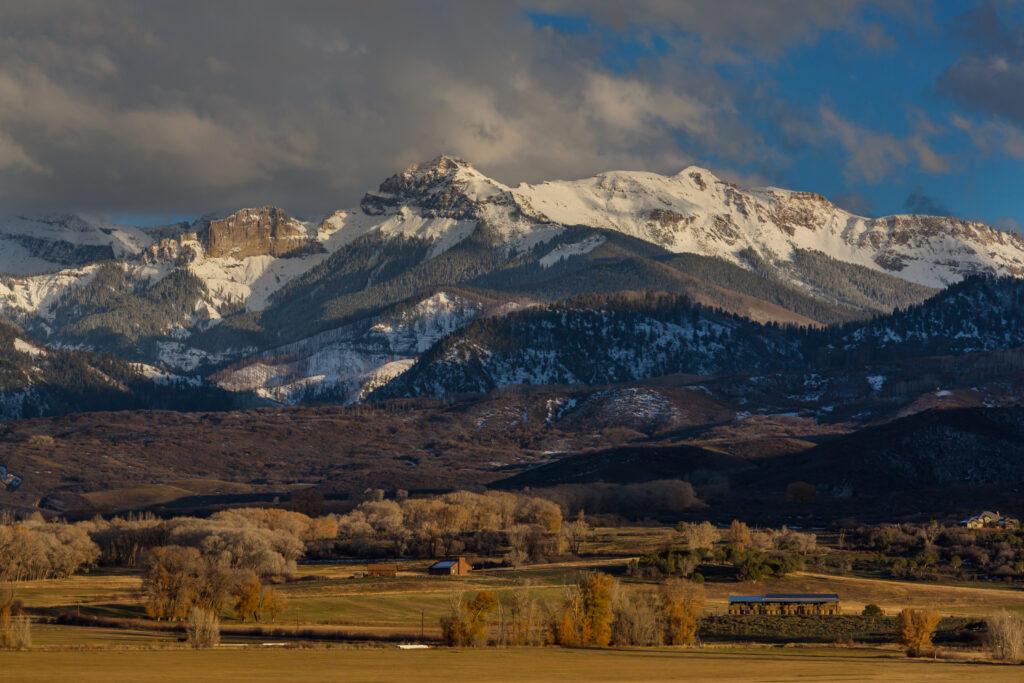
Here’s Where You Should Retire in the US — Taxes, Quality of Life & More Explained
Updated on Dec 26, 2024 • 6 min read
Retirement is a beautiful reward after a long road of work. Whether you’re just starting to plan your retirement or have been counting down the days since you started working, where you choose to retire is an important aspect of your retirement. There are so many factors to consider when choosing which state to retire in the US.
Weather, taxes, quality of life, access to healthcare, and more. These are all things to consider when choosing where to retire. We have compiled a list of the best (and worst) states to retire in based on these elements and explain why you might want to retire in these states.
Of course, when making these decisions, you should have your final expenses handled. Luckily, at Final Expense Benefits, we specialize in finding the best final expense insurance that works with you and your family. Call us at (866) 786-0725 or use our free quoting tool, and we will help you find the cheapest option with the best benefits for you.
This list will heavily depend on your preferences, so we suggest that you find the elements that you prioritize and make a decision based on those factors.
How to Find the Best State to Retire
There are a few factors to consider when looking for the best places to retire in the US. Here are just a few that you should consider:
- Taxes: Whether you’re thinking about taxes on your income or social security, each state has different rules that you should consider.
- Weather: If you love warm weather, you should consider moving somewhere south like Florida, but if you like a colder climate, you should consider Idaho.
- Healthcare: No matter what, when you get older, you’ll need to go to the doctor more regularly. Living in a place with easy access to healthcare should be an important factor to consider.
- Cost of Living: Living in a state with a high cost of living means your savings must be higher before retirement.
- Natural Disasters: Much like weather, the rate at which you experience national disasters is an important factor to consider.
- Recreation & Community: Living in a location with recreational activities (like national parks) or an active elderly community will keep you engaged.
- Crime Rate: When you live in a city or a highly populated area, you will experience crime at a higher rate.
We’ve evaluated all the states based on these factors. However, you should prioritize the elements of a location based on your preferences.
Where Are the Best States to Retire In the US

Delaware
Delaware has become a popular retirement destination because of taxes. Its low property taxes, no social security or income tax, and additional tax deductions make it one of the best tax-friendly states for retirement. However, Delaware has a higher cost of living and limited healthcare facilities compared to the other states on this list.
18% of the population in Delaware is over the age of 65, so finding a stable community will be easier than in other states. Plus, retirement and property taxes are low, no taxes on Social Security income or sales, and there are additional tax breaks for seniors. Delaware also has a moderate climate with lots of outdoor activities (golfing, hiking, fishing, etc). This makes Delaware one of the best states to live in for your retirement.
Unfortunately, Delaware does experience a higher cost of living due to the lack of taxes and healthcare options are limited which makes it difficult for retirees to find coverage they might need in their golden years. Depending on where you live, the crime rate might be higher than the national average.
Florida
Florida has always ranked high on lists of places to retire and for good reasons. With a relatively low cost of living and great tax benefits for retirees, it’s easy to see why many people initially think of retiring in Florida. Plus, there is a thriving senior population which will help you stay connected with those around you.
The average temperature in Florida is a moderate 72 degrees Fahrenheit with great tax breaks for seniors. With no tax on state income, inheritance, estate, Social Security benefits, pensions, IRAs, 401(k)s, and other retirement income, it is consistently one of the best tax-friendly states to live in for retirees.
While the weather is usually agreeable for the majority of the time, it is consistently hot and humid during hurricane season (which runs from June 1 to November 30). Because of the higher rate of natural disasters, homeowners insurance is relatively high, and you’ll have to pay separately for flood insurance. Plus, Florida has a fast-growing tourist population that could be a deterrent if you live near a city.
Colorado
Colorado has become one of the best places to retire based on the tax deductions that you will receive on your retirement income. With a low cost of living, a healthy senior community, and easy access to healthcare, it’s no wonder why it has made our list. However, in the winter, it does experience heavy snowstorms and inclement weather.
Retirees in Colorado will experience large tax deductions for retirement income and low property taxes. The cost of living is reasonable when compared to some of the states on our list, and it has easy access to a few national parks and outdoor activities. It even has an active senior community that can keep you connected with others. Good healthcare is also easier to come by throughout Colorado.
In the winter, you can expect to experience snowstorms, high winds, and hail. In the summer, wildfires are common. Expect to adapt depending on where you live in Colorado. Plus, housing in Colorado is higher than the national average, so you’ll want to prepare for the initial costs.
South Carolina
With affordable housing, tax-friendly laws, and easy access to healthcare options, South Carolina has easily become one of the best states for retirees. It has decent weather outside of hurricane season, and the state income tax is relatively low as well. Just be aware that South Carolina has a higher crime rate when compared to other US states.
The price of a house in South Carolina is around $388,000, which is $113,000 less than the national average. Also, South Carolina does not tax Social Security benefits and offers a retirement income deduction for those over 65. If weather is a concern, winter temperatures are manageable, or if you need easy access to healthcare, South Carolina has plenty of options for you.
Unfortunately, hurricanes are still a concern in South Carolina, especially if you live near the coast, so you’ll have to prepare for the worst during hurricane season (June 1 to November 30). It also has a high crime rate with other states in the US.
Idaho
Idaho is a popular retirement destination due to the affordable housing and low property taxes. Its low crime rate is an additional plus, but it lacks community due to its low population density. It can also get extremely cold in the winter with lots of snow that can make it hard to move around.
Social Security in Idaho is exempt from state income taxes and boasts a low crime rate for residents. There are also plenty of outdoor activities within the state, so you will have plenty to do within the state. It also has affordable housing relative to other states.
The winter weather in Idaho is less than ideal. You will be experiencing a very cold winter every year with lots of snow that will make it hard to maneuver around. It also has a low population density, so depending on where you live, you might feel isolated from the community.
Where Are the Worst States to Retire In the US

Alaska
Alaska has been named “cold and beautiful” by the Washington Post, so you might be inclined to move there if you enjoy a colder climate with scenic views. However, the high cost of living and isolation from the other 49 states is less than ideal, especially if you’re moving away from friends and family. The crime rate is also higher than the national average, and Alaska is prone to natural disasters like earthquakes and avalanches.
Alaskans pay the lowest taxes in America with no state income, sale, or estate taxes. Plus, seniors will also get a break on property taxes. It also has great scenery that offers Northern Lights, glaciers, and abundant wildlife. There are plenty of outdoor recreational activities that you can enjoy throughout the state. You’ll even get a stipend from the government if you can live there for more than a year.
Alaskan weather is very cold in the winter, and the sun might not appear for weeks at a time during winter. The cost of living is relatively high in Alaska, and despite being over twice the size of Texas, the population is very low. Plus, you’ll have to endure constant earthquakes because it is located on a set of tectonic plates. Healthcare is also harder to come by throughout Alaska.
New York
New York, especially New York City, has a very high cost of living and suffers from overcrowding and bitter winters. However, you won’t be taxed on Social Security benefits with deductions on retirement income. And if you choose to live in New York City, you’ll be surrounded by culture and art with plenty of recreational activities to keep you occupied.
New York City is the epicenter of art and culture in the US, so there are plenty of things you can do throughout the city. The state also does not place taxes on Social Security benefits and offers deductions on some retirement income. It’s also relatively easy to get around the city due to the metro system.
The cost of living in New York, especially New York City, is some of the worst in the country. It is 68% higher than the national average, so you will need to save much more for your retirement in New York. Traffic is also abysmal within the city, so you might not want to drive around the city. No matter where you live in New York, you will experience cold winters and heavy snowstorms that could impede your ability to move around, and the city is also prone to flooding depending on the season.
New Jersey
New Jersey has a mild climate with easy access to New York City, so if you’re thinking about a New Jersey retirement, you’ll have plenty of things to do. However, New Jersey ranks low in affordability and there are limited tax breaks for seniors, making it less than ideal for those seeking a state to retire.
New Jersey has a mild climate that you can enjoy during all the seasons. Plus, it is right next to New York City, with more affordable housing than the city. You won’t run out of activities to do, and it ranks right in the middle for quality of life and healthcare options.
Unfortunately, New Jersey has limited tax breaks for seniors, which drains your savings for retirement. It is even one of the 17 states that still holds an inheritance tax which is less than ideal for those thinking about leaving money for their families. New Jersey also ranks very low in affordability, which means that you’ll be paying more for groceries, housing, gas, etc. You’ll also have to be aware of natural disasters like flooding and snowstorms.
Kentucky
Kentucky has affordable housing and a low cost of living. Plus, Social Security income is not taxed, and retirement income is exempt from taxes. Initially, that might intrigue retirees. However, it consistently ranks low on life expectancy, quality of life, and healthcare options. You’ll also be experiencing many natural disasters (like tornados and flooding) and bugs during the summers depending on where you live.
Kentucky is one of the more affordable states to retire in due to its affordable housing and low cost of living. The tax benefits that seniors receive are also ideal since Social Security income is not taxed and retirement income is exempt from taxes up to a certain amount.
When you look up lists of life expectancy, quality of life, and healthcare options per state, Kentucky ranks relatively low compared to other states. Summers bring bugs, and harsh winters are year-round occurrences, so there are only a few moments within the year when outdoor activities are ideal. Plus, depending on where you live, natural disasters, like flooding and tornados, might be common occurrences. With limited transportation and entertainment options, it’s hard to recommend Kentucky as a location for retirement.
Mississippi
Mississippi boasts a low cost of living when compared to other states. Its groceries, utilities, gas, and transportation consistently rank lower than the national average. However, its high senior mortality rate, food insecurity, and senior isolation make it hard for us to recommend Mississippi for your retirement.
Mississippi is one of the lowest cost states to live in compared to the rest of the nation and exempts all retirement income from taxation — including Social Security benefits and income from 401(k)s and IRAs. Winters are also quite mild.
Mississippi is probably the worst state to retire in, hands down. Mortality rates among seniors is incredibly high and access to quality healthcare can be scarce depending on where in Mississippi that you live. It has the second highest poverty rate in the country and the socio-economic conditions for seniors are very poor. Food insecurity and social isolation for seniors is a major concern that can lead to depression. The climate in Mississippi gets very rainy and humid and is among the top 10 states for twisters, which does not help the situation. The economic situation in Mississippi is also not great; unemployment rates are high, which can be a problem if you were looking to make side money in addition to your benefits.
Conclusion
Where you choose to retire is a difficult choice to make. Overall, there is no real best place to retire in the us. It’ll heavily depend on what you prioritize within your retirement, but we hope that by reading through this article, you have a better idea of what you are looking for in your final days.
At Final Expense Benefits, we strive to help you get ready for retirement and end-of-life finances such as funeral costs and debt. Call us at (866) 786-0725 for information on how to ease the financial burden for your family after you pass. You can also use our free quoting tool to get an accurate estimate of your burial insurance costs.
FAQ
Is Florida the Best State to Retire In?
That’ll depend on your priorities when it comes to retirement. Florida has great weather and tax benefits for seniors, and it is overall one of the most senior-friendly states in America. It is one of the best states to retire in, but you might be experiencing a higher risk of natural disasters and overcrowding.
What is final expense insurance?
According to SmartAsset, the most tax-friendly states for seniors are Alaska, Florida, Georgia, Mississippi, Nevada, South Dakota, and Wyoming. If taxes are your most important concern when making your retirement decisions, you might want to take a look into those states.
Best Place to Retire for Military?
According to WalletHub, the best state for military retirees is South Carolina. That’s mostly due to the many benefits that veterans and military service members receive. Veterans can enjoy academic credits and no tax military pensions.
Best Place to Retire for Outdoor Activities?
According to the AARP, the most outdoor activity-friendly location is in Colorado. It’s close to the Rocky Mountains and offers plenty of hiking, fishing, and biking. It’s also consistently warm and averages a summer temperature in the 80s.

